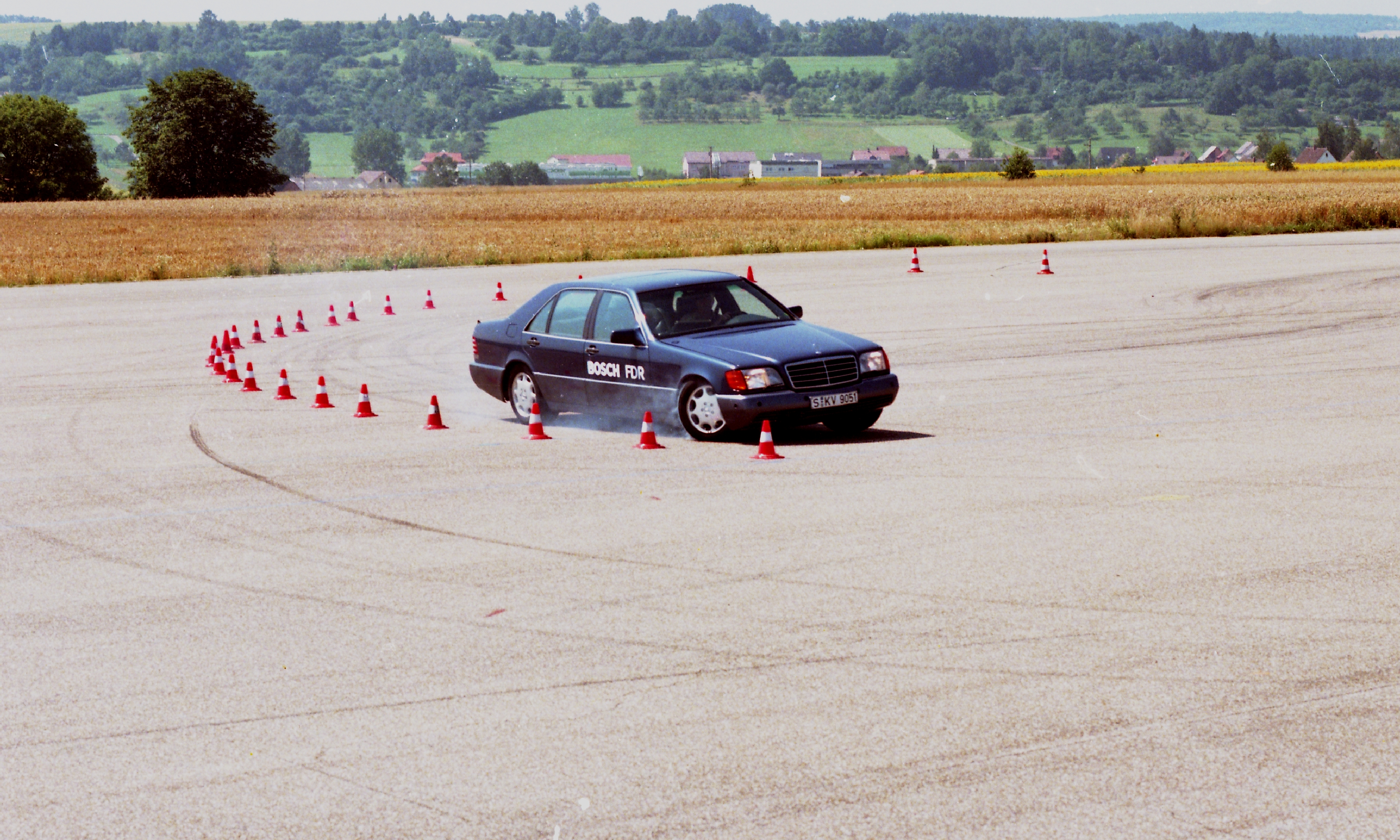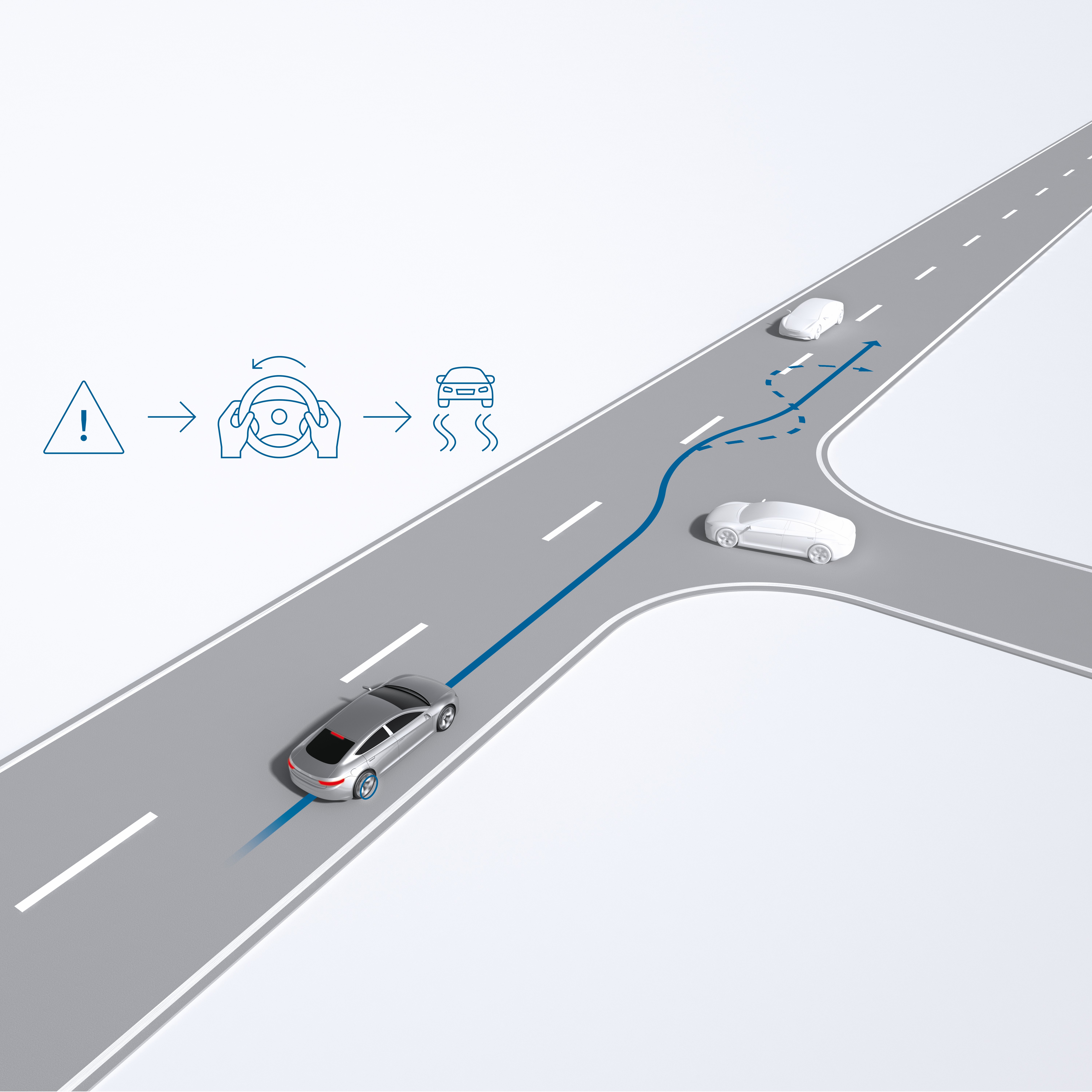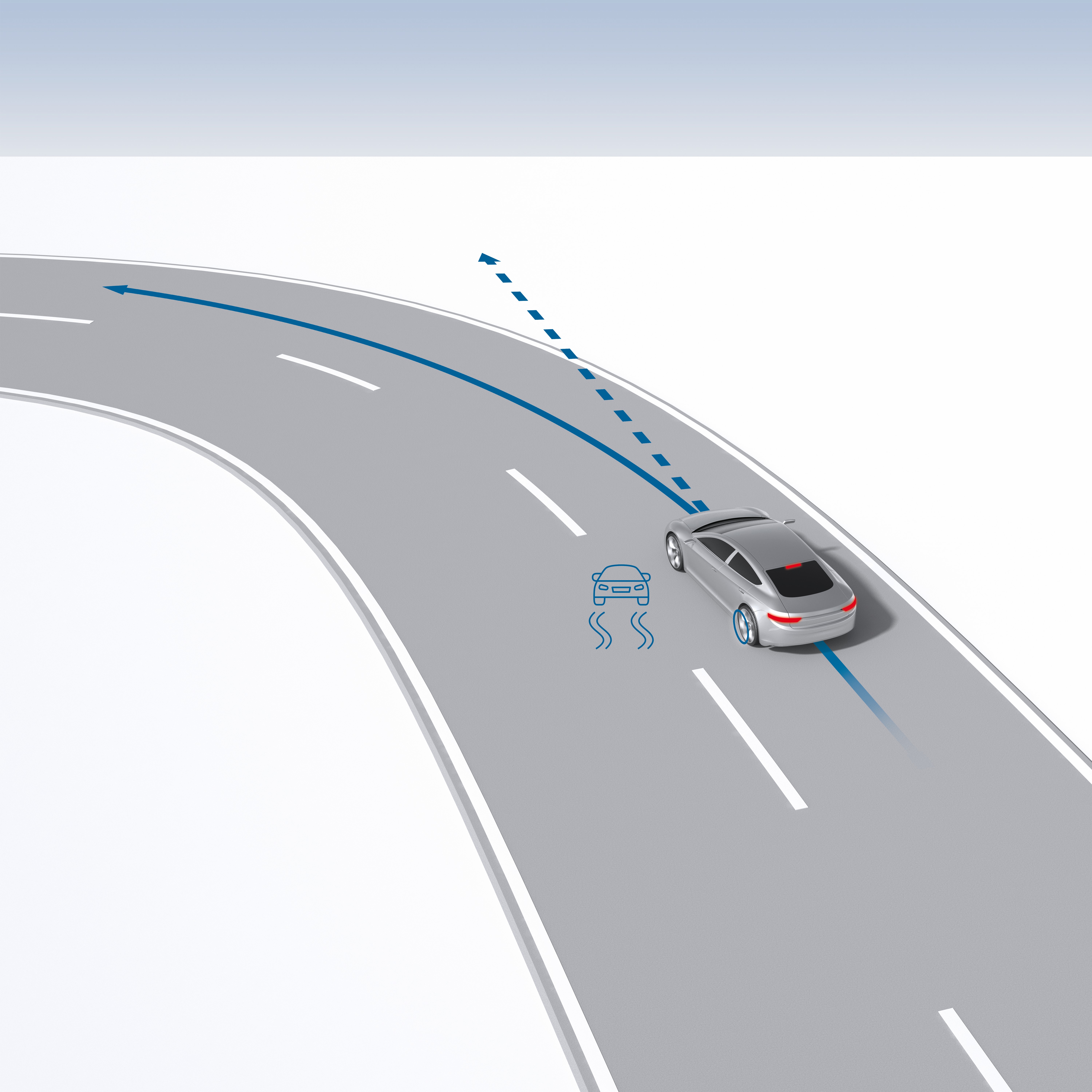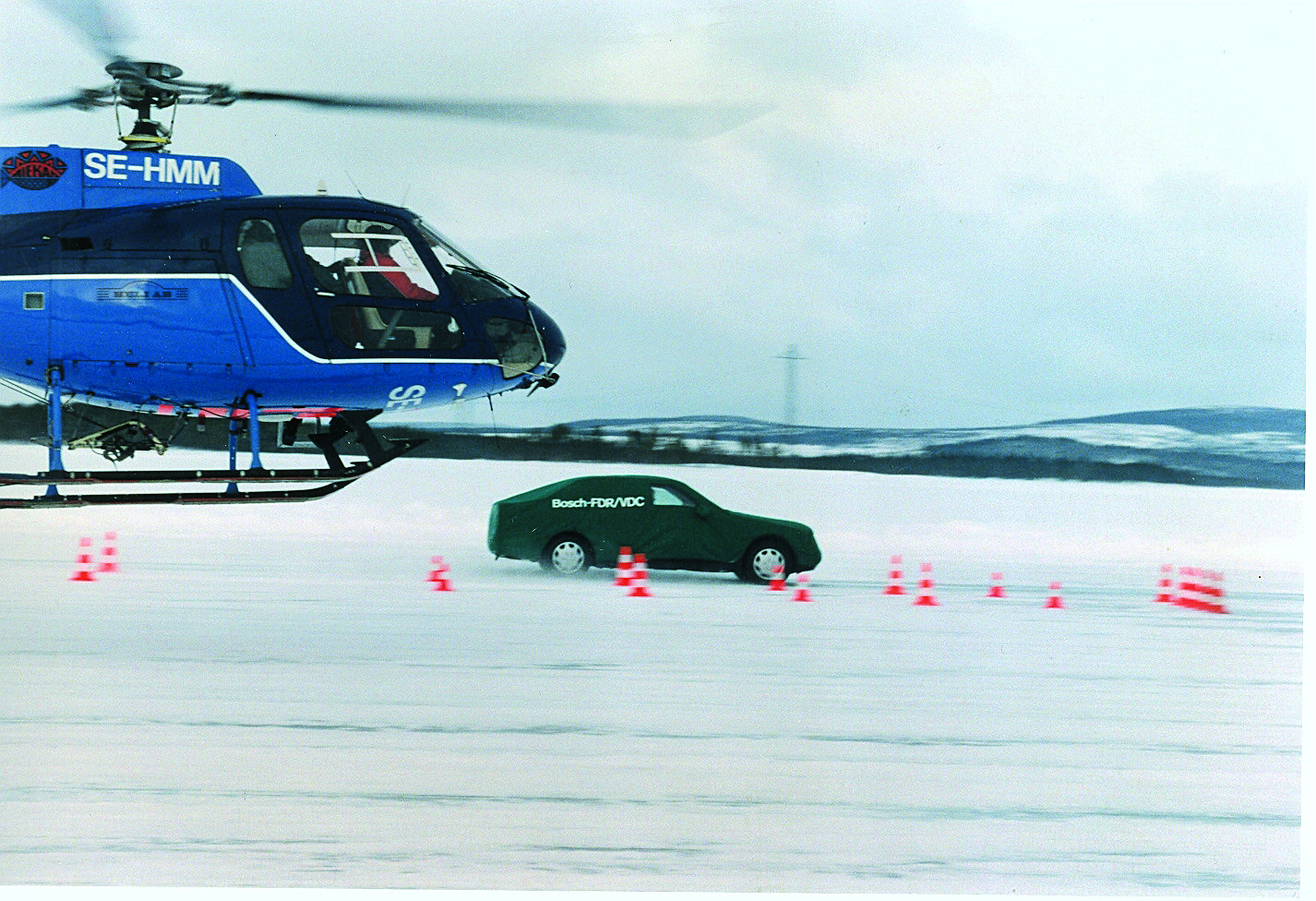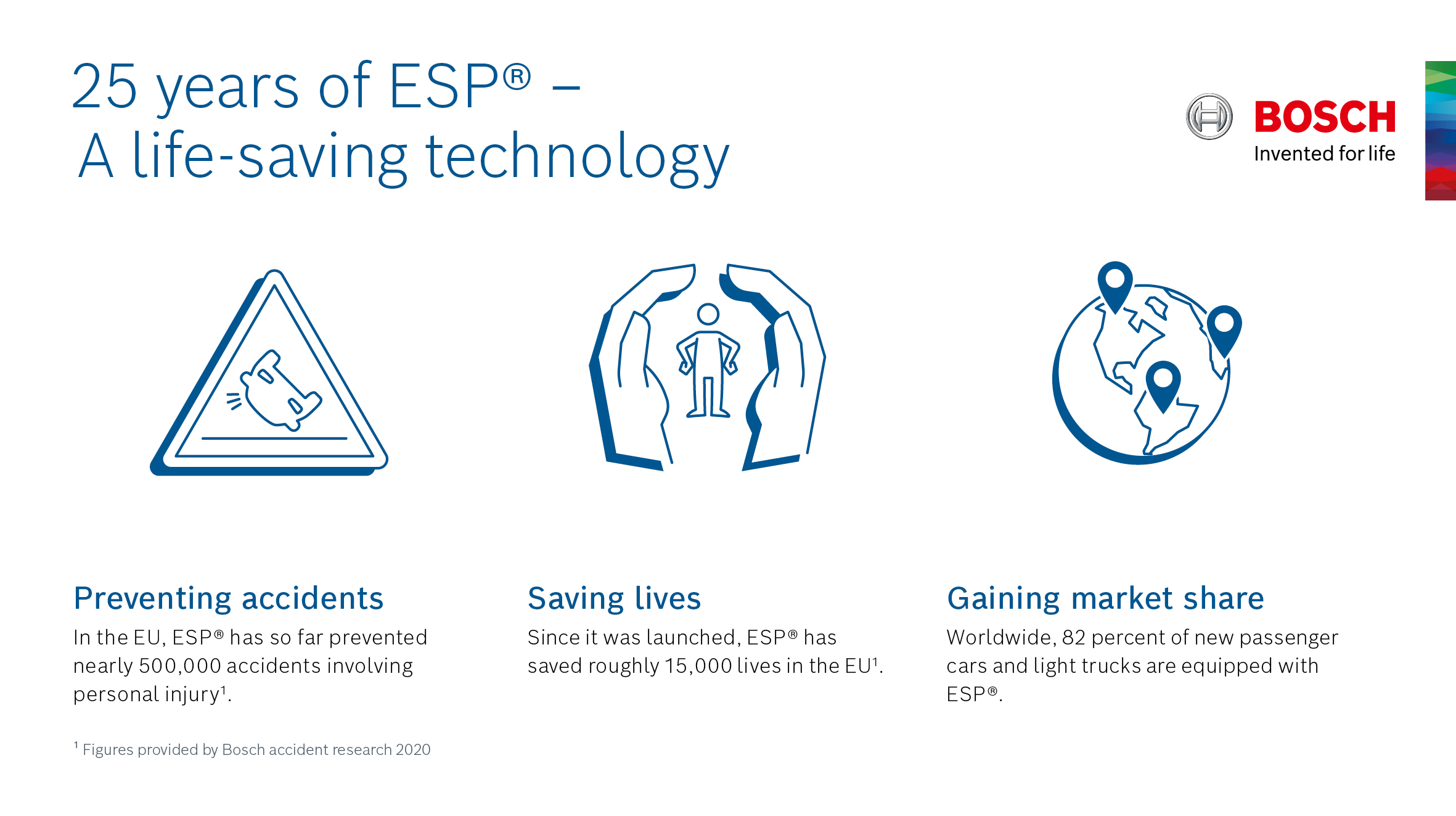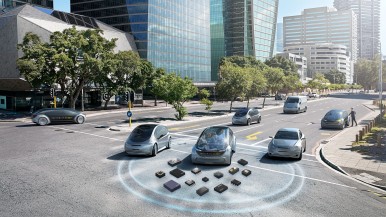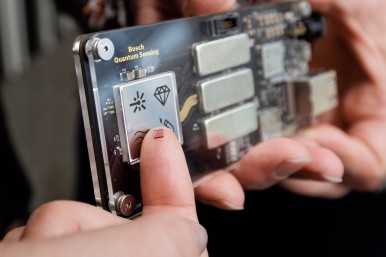Stuttgart, Germany – A wet road and a sudden evasive maneuver: there was a time when such a situation would frequently have ended in a ditch or against a crash barrier, and not rarely with fatalities or severe injuries. Almost 25 years ago to the day, a remedy was finally provided in the shape of a pioneering invention – the ESP® electronic stability program that Bosch and Daimler-Benz first launched in S-class vehicles in 1995. Since then, ESP® has been keeping vehicles safely on track, also in critical situations. Bosch accident researchers estimate that in the EU alone, the anti-skid system has saved some 15,000 lives over the past 25 years, as well as preventing just under half a million accidents involving personal injury. Together with the seatbelt and airbag, ESP® is one of the most important life-savers in a vehicle. “The development of the electronic stability program was a milestone on the path to our ‘vision zero’ of no more road deaths,” says the Bosch board of management member Harald Kroeger. “ESP® is an outstanding example of what we mean by ‘Invented for life.” The innovation may be from 1995, but there is nothing dated about it: Bosch has continuously improved its anti-skid system, and produced more than 250 million ESP® systems to date. Modern cars are inconceivable without this electronic guardian angel. Worldwide, 82 percent of all new vehicles are equipped with ESP®. In 2016, this figure was 64 percent.
Further information on the history of the ESP® and other innovations from Bosch for road safety can be found here.
Mobility is the largest Bosch Group business sector. According to preliminary figures, it generated sales of 55.9 billion euros in 2024, and thus contributed around 62 percent of total sales. This makes the Bosch Group one of the leading mobility suppliers. Bosch Mobility pursues a vision of mobility that is safe, sustainable, and exciting. For its customers, the outcome is integrated mobility solutions. The business sector’s main areas of activity are electrification, software and services, semiconductors and sensors, vehicle computers, advanced driver assistance systems, systems for vehicle dynamics control, repair-shop concepts, as well as technology and services for the automotive aftermarket. Bosch is synonymous with important automotive innovations, such as electronic engine management, the ESP anti-skid system, and common-rail diesel technology.
The Bosch Group is a leading global supplier of technology and services. It employs roughly 417,900 associates worldwide (as of December 31, 2024). According to preliminary figures, the company generated sales of 90.5 billion euros in 2024. Its operations are divided into four business sectors: Mobility, Industrial Technology, Consumer Goods, and Energy and Building Technology. With its business activities, the company aims to use technology to help shape universal trends such as automation, electrification, digitalization, connectivity, and an orientation to sustainability. In this context, Bosch’s broad diversification across regions and industries strengthens its innovativeness and robustness. Bosch uses its proven expertise in sensor technology, software, and services to offer customers cross-domain solutions from a single source. It also applies its expertise in connectivity and artificial intelligence in order to develop and manufacture user-friendly, sustainable products. With technology that is “Invented for life,” Bosch wants to help improve quality of life and conserve natural resources. The Bosch Group comprises Robert Bosch GmbH and its roughly 470 subsidiary and regional companies in over 60 countries. Including sales and service partners, Bosch’s global manufacturing, engineering, and sales network covers nearly every country in the world. Bosch’s innovative strength is key to the company’s further development. At 136 locations across the globe, Bosch employs some 86,900 associates in research and development, of which nearly 48,000 are software engineers.
Additional information is available online at www.bosch.com, www.iot.bosch.com, www.bosch-press.com.





